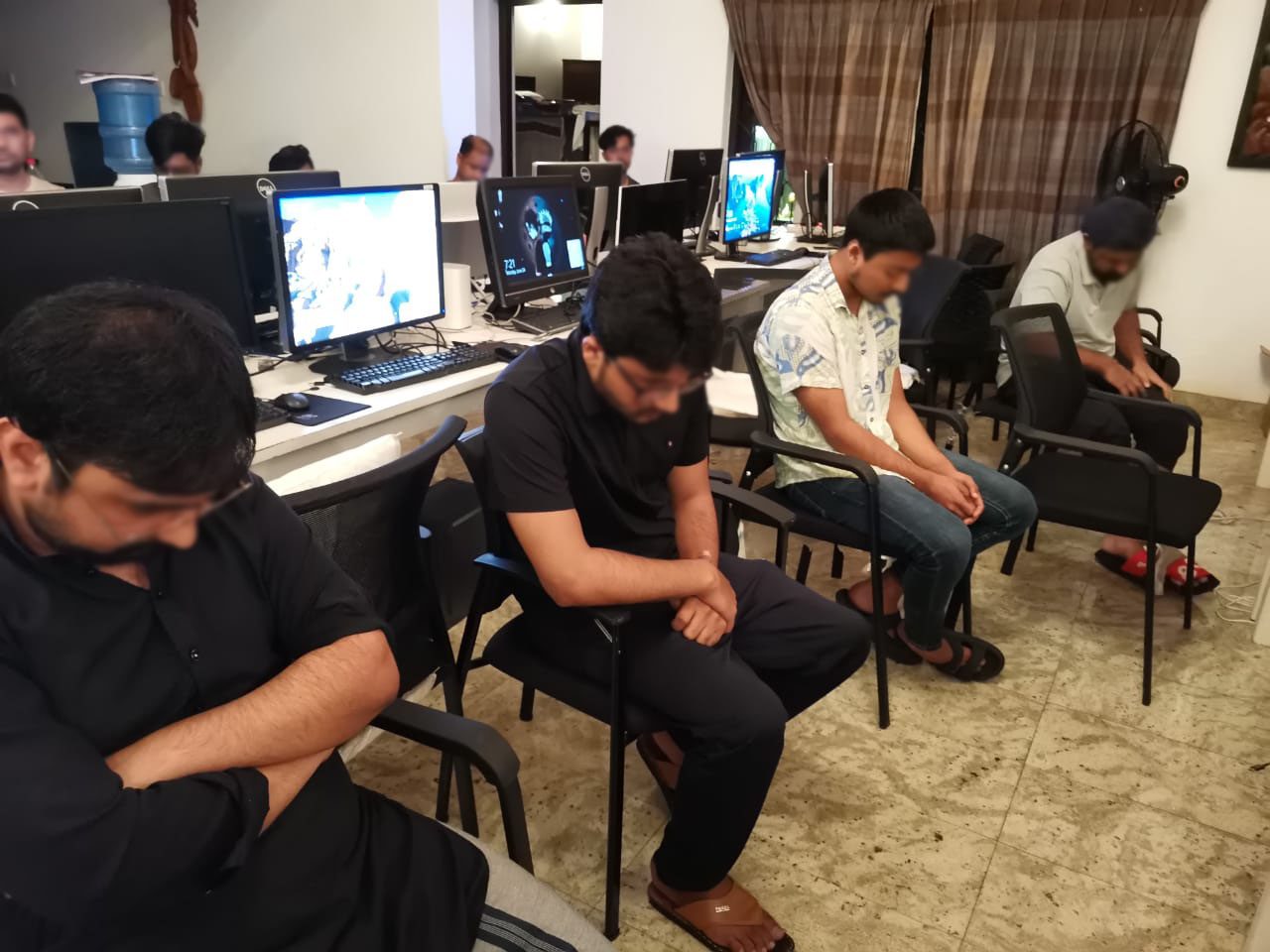
In the last two months alone, Sri Lankan authorities have arrested 84 foreigners who were allegedly operating online scamming compounds in the south if the island – including in hotels along the tourist-filled coasts.
The latest announcement comes as the island seems to be the latest base of activity for online fraud, similar to those in Myanmar and Cambodia.
The first arrests came in June this year when Sri Lanka’s Criminal Investigations Department (CID) unearthed a large-scale online financial fraud network operating from Negombo, targeting multiple foreign countries and residents through online scams.
The raid at this residence led to the arrest of 33 suspects, including several foreign nationals, involved in the illicit scheme. The investigation itself was triggered by a complaint lodged by a Sri Lankan woman who reported that she was lured into a WhatsApp group promising cash payments in return for tasks like commenting on videos and taking screenshots. She told the officers that there were hundreds like her in her group alone while there were dozens of similar groups being operated in the similar manner. She said that although she was paid as promised by the scammers, she later faced demands by them to deposit substantial sums of money into private bank accounts. She herself was scammed into a deposit totalling Rs.5.4 million.
Police followed the trail of bank accounts which led them to a father and son (both Sri Lankans) from Kandy who confessed to being part of the ring. Based on the information, police raided a luxury house in Negombo where they arrested the suspects including two women. They seized 57 mobile phones, 13 computers, and 3 laptops that were used to scam people. The foreigners were from Pakistan, India, Bangladesh, and Indonesia. The arrested suspects disclosed that their operations stretched beyond Sri Lanka with bases in Dubai and Afghanistan.
This week, the police also raided another property, this time in the coastal town of Kalpitiya, where they arrested 54 Chinese nationals and one Japanese woman on suspicion of engaging in online fraud. The suspects allegedly defrauded money through online schemes. Authorities recovered over Rs. 10 million from their possession, during the raid, police recovered 98 mobile phones, 44 laptops, and numerous SIM cards from the suspects.
"A hotel in the Kalpitiya area of Puttalam was searched based on a search warrant obtained from the Magistrate's Court. The arrest was made after discovering that this group of foreigners was using computers to conduct suspicious online transactions," said DIG Ruwan Gunasekara (Attorney-at-Law), the Acting Police Spokesperson.
Sri Lanka is still reeling from an economic crisis that shot up inflation sharply. This resulted in the price of goods and services increasing and the cost of living. Compounded by loss of livelihoods, layoffs, and stagnant salaries, the island has seemingly attracted a hive of online money-making scams.
